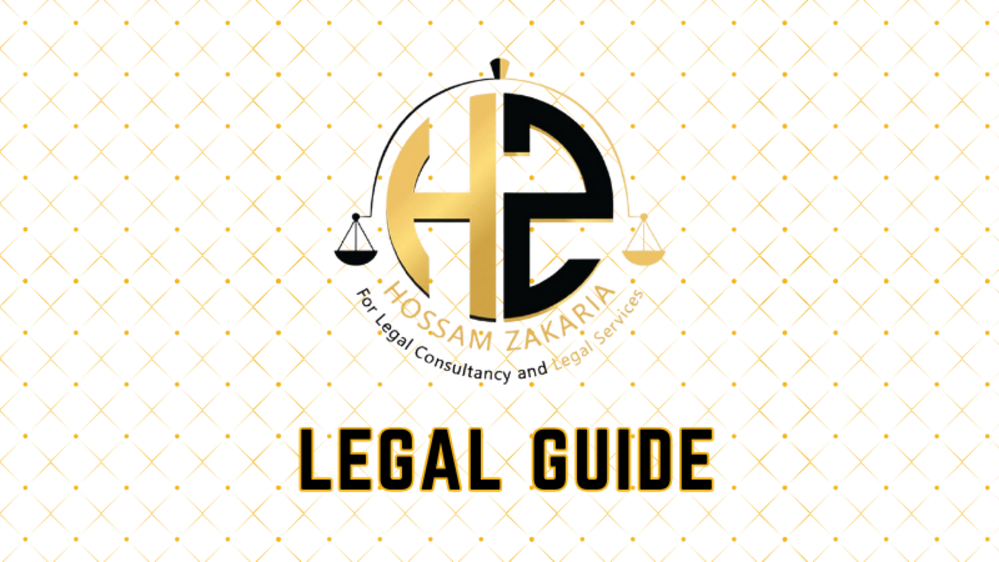Introduction
The surge in cross-border commerce and mega-projects between the United Arab Emirates (UAE) and Saudi Arabia has spurred unprecedented growth in alternative dispute resolution, particularly arbitration. For UAE businesses, legal teams, and multinational executives, understanding the precise qualifications and duties of arbitrators in Saudi Arabia has never been more critical. Recent updates to the Saudi Arbitration Law, alongside evolving federal directives in the UAE such as Federal Law No. 6 of 2018 (UAE Arbitration Law) and related cabinet resolutions, demand informed and proactive compliance strategies. This article offers a consultancy-standard, in-depth legal analysis of arbitrator qualifications and duties in Saudi Arabia from a UAE legal perspective, highlighting key provisions, compliance risks, and practical recommendations for businesses operating in bilateral contexts.
The stakes are high: improperly appointed arbitrators or misinterpretation of procedural duties may result in unenforceable awards, reputational loss, and regulatory penalties under both Saudi and UAE legislations. With the GCC’s dispute landscape becoming increasingly sophisticated, this comprehensive guide empowers organizations to navigate legal uncertainties confidently, remain compliant, and harness arbitration as an effective mechanism for dispute resolution.
Table of Contents
- Overview of Arbitration Laws: Saudi Arabia and UAE
- Core Qualifications Required for Arbitrators
- Duties and Obligations of Arbitrators
- Comparative Analysis of Legacy and Modern Requirements
- Case Studies and Practical Examples
- Compliance Risks and Strategic Recommendations
- Conclusion and Future Outlook
Overview of Arbitration Laws: Saudi Arabia and UAE
Key Legal Frameworks
Arbitration has emerged as the preferred dispute resolution method in GCC countries, underpinned by legislative reforms aimed at aligning domestic practices with international standards, notably the UNCITRAL Model Law. In Saudi Arabia, the principal legislation is the Saudi Arbitration Law of 2012 (Royal Decree No. M/34), further clarified by its Implementing Regulations (2017). The UAE, meanwhile, is governed by Federal Law No. 6 of 2018 on Arbitration, with oversight by the Ministry of Justice and various free zone arbitration centers, such as the DIFC-LCIA and ADGM.
Why Understanding Arbitrators Qualifications and Duties Matters
- Bilateral Case Enforceability: Awards rendered in Saudi arbitrations, when sought for enforcement in the UAE (or vice versa), necessitate strict adherence to qualification and duty standards as recognized by the courts in each jurisdiction.
- Corporate Governance Risk: Mishandled arbitrator appointments or procedural lapses expose UAE-based entities to award annulment risks and diminished commercial standing.
- Legal Reform and Dynamic Compliance: Ongoing reforms in both countries call for organizations to regularly update their arbitration policies and training protocols in line with the latest government guidelines.
Official Sources
- Saudi Arbitration Law (Royal Decree No. M/34 of 2012)
- Saudi Implementing Regulations (2017)
- UAE Federal Law No. 6 of 2018 on Arbitration
- Ministry of Justice UAE, Federal Legal Gazette
Core Qualifications Required for Arbitrators
Saudi Arabia: Key Qualifications
The Saudi Arbitration Law emphasizes objective, professional, and ethical standards for arbitrator appointments. Key provisions (Articles 14-17) stipulate:
- Legal Capacity: Arbitrators must possess full legal capacity (i.e., legal age and sound mind) and be free of any convictions relating to crimes of moral turpitude.
- Expertise and Experience: No formal requirement for Saudi nationality or residency, but substantial professional experience, technical proficiency in the dispute subject, and a proven track record are crucial.
- Impartiality and Independence: Arbitrators must not have any direct or indirect interest in the case, relationship with parties, or prior involvement that impugns neutrality.
- Language Proficiency: Arbitrators must demonstrate proficiency in the procedural language agreed by parties—which is often Arabic, but international cases may allow English or others.
- No Government Limitation: Government officials are generally excluded unless specifically authorized.
UAE: Qualification Standards and Best Practices
Federal Law No. 6 of 2018 reinforces similar principles (Articles 10-14), with additional clarifications:
- Minimum Age: At least 21 years old.
- Professional Record: Free from bankruptcy or criminal convictions affecting honor or integrity.
- Technical Expertise: While law background is common, technical experts (e.g., engineers, accountants) are regularly appointed for specialized disputes.
- Registration with Arbitration Centers: Major UAE arbitration institutions maintain rosters of approved arbitrators based on strict vetting, including review of qualifications, references, and past awards.
Table: Comparative Overview of Arbitrator Qualification Criteria
| Criteria | Saudi Arabia (2012 Law) | UAE (2018 Law) |
|---|---|---|
| Minimum Age | Legal Age Required (usually 18+) | 21 Years |
| Professional Background | Relevant Experience (no nationality restriction) | Relevant Expertise; often legal or technical |
| Integrity/Criminal Record | No conviction for dishonorable crimes | No conviction affecting honor/trust |
| Independence & Impartiality | Strictly Required | Strictly Required |
| Arbitration Center Vetting | Optional, often ad hoc | Required for major institution panels |
| Language Proficiency | Language as per parties’ agreement | Arabic or party-selected language |
Practical Consultancy Insight
Given the strict interpretation of arbitrator qualification standards by both Saudi and UAE courts, parties must exercise robust due diligence at appointment stage. Background checks, reference reviews, and declarations of independence are not mere formalities—they are essential safeguards against challenges to the tribunal’s legitimacy.
Duties and Obligations of Arbitrators
Core Duties under Saudi Law
- Duty of Impartiality: Article 16 imposes an ongoing duty to disclose any circumstance that may impart bias, both before and during proceedings.
- Duty of Diligence: Arbitrators are expected to actively participate, thoroughly review evidence, and ensure proper procedural management.
- Confidentiality: Safeguarding the privacy of proceedings and parties’ information is legally mandated.
- Issuance of Reasoned Awards: Awards must be thorough, legally reasoned, and issued within timeline constraints. Failure to provide reasoning or awarding outside the jurisdiction can render decisions void or subject to annulment upon challenge.
UAE Requirements: Enhanced Responsibilities
- Continuous Disclosure: Article 15 prescribes an ongoing disclosure obligation up to the completion of the arbitration; non-disclosure exposes awards to challenge in UAE courts.
- Procedural Fairness: Arbitrators must ensure due process, equal treatment, and the right to present arguments fully.
- Conflict of Interest Prohibition: Immediate withdrawal is required if conflicts arise during proceedings.
- Time Management & Efficiency: Delays beyond statutory or agreed deadlines may result in replacement of arbitrators or impact award enforceability.
- Confidentiality and Data Protection: The scope of confidentiality now extends to digital evidence and electronic records, especially under recent Ministerial circulars on data privacy.
Visual Suggestion: Compliance Checklist for Arbitrators
| Checklist Item | Status |
|---|---|
| Declaration of Independence & Impartiality | ☐ Completed / ☑ Pending |
| Disclosure of Conflicts | ☐ Completed / ☑ Ongoing monitoring |
| Professional Registration Verified | ☐ Checked / ☑ Not checked |
| Procedural Language Confirmed | ☐ Agreed / ☑ Not agreed |
| Confidentiality Agreement Signed | ☐ Yes / ☑ No |
Comparative Analysis of Legacy and Modern Requirements
Evolution of Arbitrator Rules in Saudi Arabia
Prior to the 2012 Saudi Arbitration Law, arbitrator appointments were tightly regulated, with a preference for court-appointed or government-approved individuals. The reformed law dispensed with nationality and residency restrictions, opening the field for international expertise and aligning with global trends.
| Parameter | Pre-2012 | Post-2012 (Current Law) |
|---|---|---|
| Nationality Requirement | Saudi or GCC only | Open to all, if agreed by parties |
| Court Involvement | Frequent, including appointment | Reduced—only on challenge/institutional oversight |
| Language Flexibility | Arabic almost always required | Based on party agreement (commonly Arabic or English) |
| Scope of Confidentiality | Narrow, sometimes not defined | Explicit, including digital matters |
UAE: Advancing Standards and Digitalization
Similarly, the UAE’s transition from Civil Procedure Law (Federal Law No. 11 of 1992, Articles 203-218) to the finessed Federal Arbitration Law (No. 6 of 2018) represented a leap toward flexibility, autonomy, and protection for parties. Automated registration platforms, digital submission of appointment documents, and ongoing Ministry of Justice circulars now facilitate more transparent, efficient arbitrator selection and oversight.
Case Studies and Practical Examples
Case Study 1: Annulment of Award Due to Undeclared Conflict
Background: A Dubai-based real estate developer engaged a Saudi engineering consultant in a major project dispute, appointing an arbitrator with longstanding professional ties to one party.
Result: Despite the arbitrator’s technical expertise, the failure to disclose a prior consultancy relationship led the Saudi courts to annul the award during enforcement proceedings, citing breach of Articles 16–17 of the Saudi Arbitration Law and corresponding UAE Law Article 15 (on ongoing duty of disclosure).
Case Study 2: Qualification Challenge in Cross-Border EPC Dispute
Background: An Abu Dhabi-based EPC contractor objected to an arbitrator nominated by a Saudi partner due to the arbitrator’s criminal conviction (unconnected to the dispute).
Analysis: Both UAE and Saudi legislation require an unblemished legal record; the arbitrator resigned to preserve award enforceability, reflecting best practice under both regimes.
Hypothetical Example: Language Dispute in Bilingual Arbitration
Consider a scenario where the parties, via an ADGM arbitration, had not specified a procedural language. On the appointment of a technically proficient arbitrator lacking Arabic literacy, objections were raised during final submissions. Under both Saudi and UAE current law, arbitrators must have language command sufficient for fair evidence assessment and comprehensive award drafting. Failure to satisfy this requirement is a legitimate ground for challenge and jeopardizes enforceability of the final award.
Compliance Risks and Strategic Recommendations
Risks of Non-Compliance
- Annulment of Awards: Non-qualification, confidentiality breaches, or procedural lapses undermine award validity under enforcement procedures in both Saudi and UAE courts.
- Regulatory Penalties: Repeated non-compliance may expose organizations and legal counsel to sanctions by regulatory authorities or reporting to professional oversight bodies.
- Business Reputation Damage: High-profile annulments erode trust among counterparties and diminish market standing.
- Operational Delays: Unqualified or conflicted arbitrators may prolong disputes, escalate costs, and disrupt commercial projects.
Compliance and Risk Management Strategies
- Due Diligence Protocols: Institute formal vetting and reference checks for every arbitrator appointment. Maintain documented conflict checks and ongoing disclosures.
- Institutional Arbitration Preference: Where possible, opt for established arbitration centers with rigorous appointment procedures and administrative safeguards.
- Standardize Disclosure Procedures: Incorporate standard templates for independence and disclosure declarations, reviewed periodically throughout the arbitration process.
- Stay Updated on Statutory Amendments: Assign a compliance officer or engage external legal counsel to monitor updates from the Ministry of Justice and official UAE/Saudi legal sources. Federal Decree Law amendments can have near-immediate effect.
- Training and Internal Awareness: Conduct periodic training for legal and HR teams on arbitration law updates, risk indicators, and best practices for arbitrator selection.
- Leverage Technology**: Use digital platforms for arbitrator credential verification, compliance tracking, and documentation retention.
Visual Suggestion: Process Flow Diagram
(Recommend inclusion of a process flow diagram illustrating the appoint-disclose-review-monitor lifecycle for arbitrator compliance under Saudi and UAE laws.)
Conclusion and Future Outlook
The meticulous regulation of arbitrators in Saudi Arabia and the UAE underscores the region’s commitment to robust, fair, and enforceable dispute resolution mechanisms. Recent statutory amendments, greater transparency, and digital transformation have raised the standard for tribunal appointment and duty performance. For UAE-based businesses engaging in Saudi disputes, rigorous due diligence and ongoing compliance with both countries’ requirements are non-negotiable for optimizing legal outcomes and protecting corporate interests.
Looking ahead, further regulatory refinement—particularly involving multinational appointments, online hearings, and data privacy—can be expected. Organizations should proactively align internal arbitration policies with evolving best practices and maintain active engagement with legal professionals for ongoing compliance assurance.
Best Practices Checklist for UAE Clients
- Vet arbitrator qualifications for each case based on updated Saudi and UAE rules.
- Formalize independence and disclosure procedures and maintain full documentation.
- Leverage recognized arbitration institutions and digital compliance systems.
- Continually monitor legal developments via Ministry of Justice and official gazettes.
- Invest in legal counsel to mitigate cross-border procedural and enforceability risks.
By approaching arbitrator appointments and oversight strategically, businesses can ensure resilient, enforceable outcomes and cement their position as reliable partners in the GCC and beyond.



